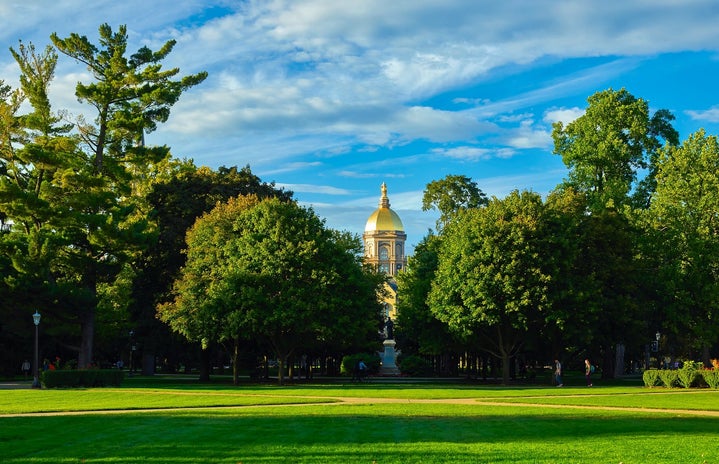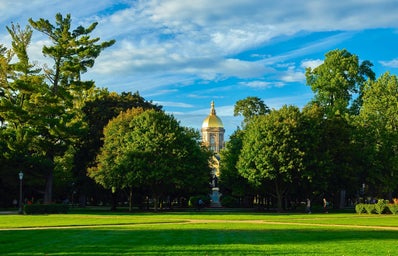Name: Riccardo Fornari
Age: 19
Birth Country: Italy
Age when you moved: 18
Immigration status: F1 Visa (Student Visa)
Major: Biological Sciences – Pre Med
Q: What brought you to the U.S.A./UConn?
RF: I always loved the U.S. and it has been a lifelong dream of mine to come live here, so it made sense to start my post-secondary education here, as well. I liked New England because of its proximity to New York City as well as Boston; UConn seemed to fit all of those requirements, while also being a decently sized school with great athletics and a beautiful campus.
Q: Can you talk in more detail about your process to get here?
RF: I actually spent a year in Tampa in 2014; I was a junior in high school and did a one year exchange program there (I was a senior there and I also graduated). I came back to Italy the following year and graduated there as well. I definitely found some key differences between the two approaches to the final year of high school. In Italy, senior year is by far the hardest year of the 5 (yes, five!) years of high school we have. At the end of the year we all have to take a stupidly hard exam in order to get a diploma. In the U.S., I observed a much more relaxed style of senior year, all focused on applying to college and taking prom pics. The first problem I encountered was definitely balancing the application process and the heavy workload during the winter of 2015. I actually only applied to 3 schools and luckily was accepted to all of them. The application process was terrible. I did not have any advisor to help me and the lack of citizenship made everything harder, especially [with] all of the steps I had to do after I chose UConn (netID stuff, housing app). I did not even know that Honors was a thing, but I would have liked to apply. Sacrifices wise, one of the biggest has to be separating from my close friends, but I was excited about diving into a new world; [I] felt I had an option to restart my life, to redefine how I am. The second hardest definitely is money. Tuition costs are insane, and I had no idea how to apply for scholarships. I luckily found a sponsor for my education that loans me money for part of my tuition each semester with 0% interest (actually amazing).
Q: What has been your favorite/the most exciting part of living in this country?
RF: Definitely the opportunities that I can get; I come from a country that, while being a lot of people’s dream to live in, is very corrupt and very tough to start a career in. Nepotism thrives in Italy, compared to a more meritocratic approach that I found and love here in the U.S. The concept of the American Dream is basically what attracted me the most and what makes me love living in this country.
Q: What has been the hardest part/most discouraging part about living in this country?
RF: While being a country made by immigrants and by diverse nationalities, I find the immigration process to be extremely tedious and time consuming. Secondly, the absence of financial aid for international students, as if all of us that came to study from other countries were rich. Some of us just have a dream and spent all we had on it, basically gambling our lives away to come here. On a completely different topic, I feel much safer in my home country [than] here.
Q: What are some of the positive aspects of the culture of your birth country- be they political, religious, or otherwise- that have helped make you who you are?
RF: I received some amazing Catholic teachings during my childhood years, and met my best friend in Sunday school. I do not like the approach that most people have to religion in the U.S., and I understand why most [people] nowadays want to rebel against it and want to be freed by it. In Italy, religion is not oppressing and lives very well alongside society, while here is an extremist branch that in my opinion goes completely against what Christian principles should be.
This is of course not true for all Christians-religious people here, but I encountered a lot of them who I disagreed with.
Q: Can you talk a little more about the religious differences between here and Italy? How does Christianity fit into society there as opposed to here?
RF: I feel like I have experienced both sides of the argument, since the school I attended in Tampa was a small private Christian school. In Italy, religion is engraved into society, without promoting acts of bigotry, discrimination, etc. as I see the Christian community doing in this country (not in its entirety, but a good part). I experienced a very moderate form of Catholicism that I grew up with and that I love; it has been a fundamental part of my life and it will always be. The pattern I see here in the U.S. is a general repulsion against any sort of religion, and honestly, seeing what some Christians preach here, I would be disgusted as well. Most people tend to feel superior to religion because they are smart and go to college, and don’t need any divine figure to explain to them how the earth works. The way I was taught, is that religion and science work alongside each other flawlessly – at least they have been in recent years – and there’s no need to make a choice between the two. It makes me extremely mad that people start to hate religion because of some extremists that preach hate and intolerance. I would just like everyone to experience the wonderful childhood I had as part of my church. A lot of people grow up in intolerant, religious households and end up hating the fanatical beliefs that they were taught, and frankly I would too.
Q: How do you contribute to the community at UConn/in the United States?
RF: I want to become a doctor so that will be my contribution eventually, but for now, at UConn, I have leadership positions in my hall association and in my fraternity. I want my spirit of leadership to guide me through my studies in order to build a career that I will be happy with and that will help many others.
Q: Can you elaborate more on your leadership positions?
RF: The first, and probably more crucial position, is the one in my hall association. I am in the executive board for Towers Hall Association as Social Coordinator, as well as head of social committee. I am learning so much from this position, as well as planning events for our whole community to enjoy (Super Bowl viewing party, Halloween event, our very own House Cup). I’d like for this position to be my starting point to be in other leadership positions in order to help out the community as much as I can. As for my fraternity one, I am Special Events co-chair this semester, so I will be helping out with Greek Week!
Q: What are your goals for the future and how have those goals been shaped by your experience at UConn and in the U.S.?
RF: As I said previously, my goal is to go to medical school and to become a doctor. My experience at UConn during my first semester made me believe that this is truly the right choice for me. My first biology course interested me a lot and I am convinced about my career path. I would have never had such laboratory experiences at home and I am sure I made the right choice by coming here.
Q: Do you hope to continue living in this country after college? Why or why not?
RF: My initial idea was to live here and I stand by it. Every day that I spend here, I am more convinced of building my future in the US.
All images courtesy of Riccardo Fornari.


